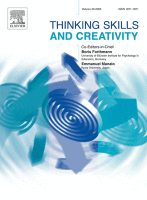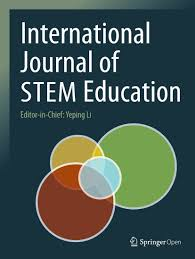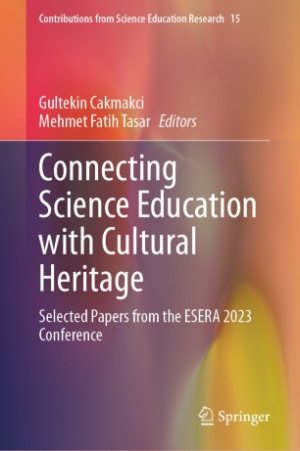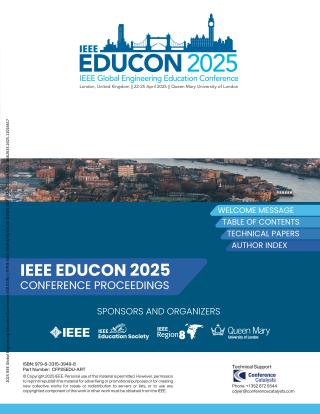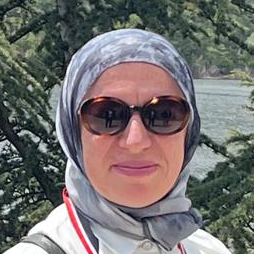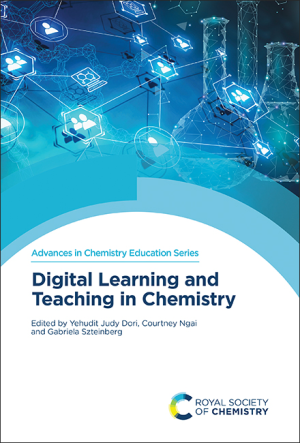-
24 Oct 2025 • Journal Article • Thinking Skills and Creativity
Critical thinking in higher education: Identifying the pedagogical practices and modes of engagement
AbstractCritical thinking (CT) is widely recognized to be among the most essential skills for university graduates to successfully compete in the 21st century global economy; yet, much obscurity remains regarding its practical role in higher education. In fact, there is a need for an accepted educational plan with pedagogical guidelines that university instructors can lean on
… show more -
2 Oct 2025 • Journal Article • International Journal of STEM Education
What role should higher education institutions play in fostering AI ethics? Insights from science and engineering graduate students
AbstractBackground
The rapid advancement of artificial intelligence (AI) has raised significant ethical concerns, prompting higher education institutions to reconsider how they prepare future STEM professionals to navigate such concerns responsibly. Despite growing efforts to integrate AI ethics into higher education, a lack of consensus and standardized approaches has led to
… show more -
5 Jun 2025 • Book Chapter • Connecting Science Education With Cultural Heritage
A Cognitive and Epistemic Account of the Nature of Engineering
AbstractEducators and policymakers advocate the need for developing engineering literacy among school students, yet there is an ongoing debate related to the conceptualization of the ‘Nature of Engineering’ (NOE) and the heuristics that should be applied. Thus, the goal of this chapter is to provide a theoretical ground for a nuanced conceptualization of the NOE while drawing
… show more -
22 Apr 2025 • Conference Paper • 2025 IEEE Global Engineering Education Conference (EDUCON)
Understanding of the Nature of Engineering: Examining the Gap Between Engineering Experts and Pre-Service Teachers
AbstractIn today's technology-driven world, marked by innovations such as generative AI, it is essential to prepare preservice teachers (PSTs) with the knowledge and skills to address new challenges in science education. PSTs with a background in science and engineering are potential change agents for shaping and promoting engineering literacy. However, even teachers with
… show more -
11 Dec 2024 • Journal Article • Research in Science Education
Fostering Knowledge and Awareness about Healthy Nutrition through Science-based Educational Escape Games
AbstractThe prevalence of diseases stemming from poor nutrition emphasizes the importance of educating people about healthy eating habits. One approach to achieving this is through educational escape games, which embody the features of a situated learning environment. Utilized the situated learning theory as a theoretical and methodological framework, the goal of our study was
… show more -
Dec 2024 • Journal Article • International Journal of STEM Education
Unpacking the role of AI ethics online education for science and engineering students
AbstractBackground
As artificial intelligence (AI) technology rapidly advances, it becomes imperative to equip students with tools to navigate through the many intricate ethical considerations surrounding its development and use. Despite growing recognition of this necessity, the integration of AI ethics into higher education curricula remains limited. This paucity highlights
… show more -
Apr 2024 • Journal Article • Research in Science Education
Science-Based Educational Escape Games: A Game Design Methodology
AbstractThe growing trend of “escape games” in science education instigates debate over their pedagogical value, with researchers calling for more emphasis on theory-based design processes. Thus, the current study’s goal was to identify situated learning components that can be associated with educational escape games and to generate a methodology that integrates these components
… show more -
Jan 2024 • Journal Article • Journal of Educators Online
The Engagement and Challenges of Xmooc Versus Cmooc Students
AbstractThe study examines massive open online course (MOOC) students' engagement and learning challenges while comparing two groups: xMOOC, a structured course based on individual learning, and cMOOC, an interactive course based on collaborative learning. Applying a mixed-methods research design, data were collected via an online survey and semi-structured interviews. The
… show more -
1 Aug 2023 • Journal Article • Science & Education
Family Resemblance Approach in Science Education
AbstractThe Family Resemblance Approach (FRA) was developed by Irzik and Nola (2011, 2014) to provide a unifying and holistic account of the nature of science (NOS). Building on existing consensus (e.g., Abd-El-Khalick & Lederman, 2000; Eflin et al., 1999; Lederman, 2007; McDonald, 2017) and grounded in the scholarship of the philosophers, historians, and sociologists of
… show more -
12 Jul 2023 • Book Chapter • Digital Learning and Teaching in Chemistry
Group Diversity and Innovative Thinking: Lessons Learned From a MOOC on Nanotechnology
AbstractMassive open online courses (MOOCs) provide unparalleled opportunities for group work with learners worldwide. Online group work has many challenges, such as generating innovative scientific outcomes in collaboration with peers from diverse backgrounds. Limited study was conducted on group diversity and its association with students’ innovative thinking—the cognitive
… show more
